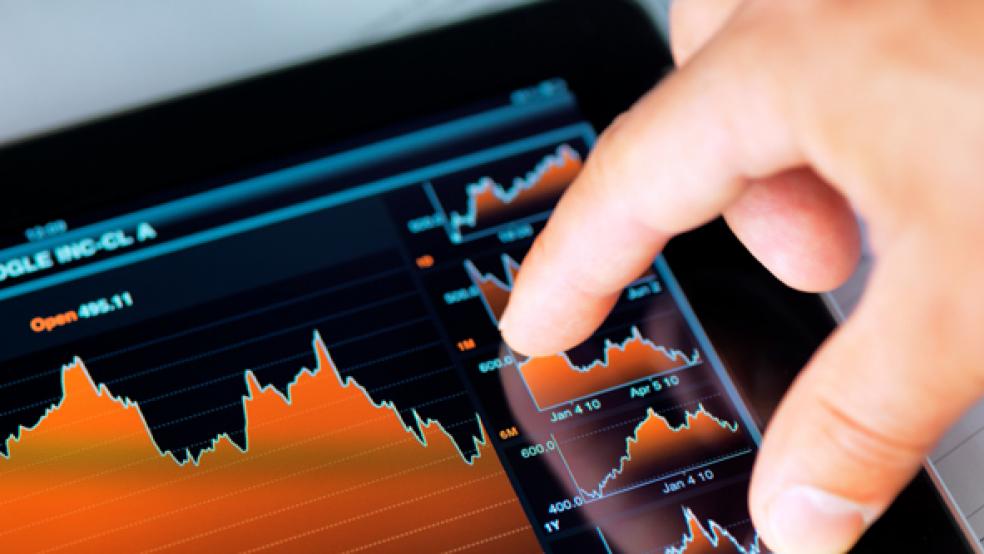I turn 55 today. As a member of the baby boom generation who hopes he's aging like a fine wine and not turning into vinegar, I abhor the idea of losing money again in a 2008-style meltdown.
If I've learned anything, it's that I'm a lousy psychic, so I don't try to guess what any market will be doing in the future. Having speculated in precious metals, tech stocks and bought and sold at the wrong moments, I've made plenty of mistakes and run off the cliff with the flock far too many times. Here are some lessons I learned along the way.
1. Being liquid is golden.
Hewing to Ben Franklin's advice, savings is my top priority. When we hit a family health crisis in 2009-2010, I was glad we had cash reserves and an investment club portfolio of established dividend-paying stocks that I could liquidate.
RELATED: What the Recession Really Cost American Families
We were able to cover huge out-of-pocket expenses, which were more than double our out-of-pocket health-insurance deductible of $6,000. Now, I'm gradually rebuilding our cash in a federally insured money-market account and a short-term bond fund. At the same time, we are also saving for our two daughters' college educations in a low-cost 529 college savings plan and funding our retirement savings.
2. Healthcare concerns need even more savings.
I'm 10 years away from qualifying for Medicare, maybe. I've seen proposals in Washington that range from privatizing the popular program to raising the eligibility age to 67.
In nearly every scenario I've seen from some of the best minds on the subject, if the program is to remain solvent, it will have to cut benefits, raise taxes and demand higher out-of-pocket contributions from beneficiaries. According to the 2012 Medicare Trustee's Report, the hospital insurance fund will be exhausted in a dozen years if nothing is done to reduce costs. Translation: That means I, and all future retirees, need to save even more to cover healthcare costs in the future.
3. The details of downside risk are critical.
I've already lived through 10 bear markets, which normally occur only about once every decade. This young century has seen two bubble-bursting downturns so far. The average duration, as calculated by Strategas Partners, has been 21 months, with an average decline in value of investments of about 40 percent.
I never again want to be in the situation where I'm looking at having lost that much of our portfolio, as was the case in 2008 (it's mostly recovered, but we rebalanced to more than 50 percent fixed-income). I'm working to rebuild a lower "beta" portfolio, that is, one that isn't as closely correlated to the S&P 500 large-stock index.
4. Human capital is my best investment.
As I strive to learn more about risk, I'm learning as much as I can about emerging areas of growth: healthcare, alternative/non-U.S. investments, derivatives and global resource allocation. So I look at opportunities with a vigilant eye on downside risk measures, like Sortino Ratios and correlation, focusing on the likelihood that different asset classes will head south at the same time (as they did in 2008).
RELATED: Make Money Like a Pro: 3 Top Investment Tools
Yet I'm still interested in risking some capital on the future: Alternative energy, international development and climate change strategies are on my radar screen. Knowledge is the commodity I want to keep investing in as I get older. Is there an index fund for that?
5. Back to the future
In my birth year at the peak of the baby boom, the yearly inflation rate was 3.34 percent and a gallon of gas cost 24 cents. Who would've thought that inflation and mortgage interest rates now would be less (on a nominal annualized basis) than at the end of the Eisenhower era?
I see opportunities that present themselves as I watch the world spin faster and faster. The earth's population has more than doubled in my lifetime, a rate of growth unprecedented in human history. All of those new souls will need food, water, places to live and the amenities of daily living. We'll need new tools to meet the demands of population growth so that we don't wreck our planet. That's why it's still a good time to buy global stocks and reduce debt on the personal, and national, levels.
And it's never a bad time to learn something new. I want to know how the global supply chain works, the latest technology/media and the evolving political situation in Washington, China, India and the Middle East. Travel, reading, cooking, making music and taking long walks or bike rides are much more important to me going forward.
My goal? To get to the point that I don't have to worry about investing at all and spend more time with my family.
The only inevitable truth about history is that change is a river that never runs dry. I'm just trying to avoid getting tossed on the rocks while navigating the rapids.
(The author is a Reuters columnist and the opinions expressed are his own.)


